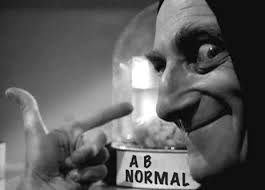记忆方法
记忆“abnormal”可以通过联想其前缀“ab-”表示“远离”或“不是”,以及词根“norm”意为“正常”,然后“-al”作为形容词后缀。将这些元素组合起来,想象成“远离正常”的情况,即为异常。这样可以将“abnormal”记忆为“不正常”。
以上内容由AI生成, 仅供参考和借鉴
中文词源
abnormal 不正常的
前缀ab-, 离开,非。normal,正常。
英语词源
- abnormal (adj.)
- 1835, displaced older abnormous (1742) and rival anormal (1835) under influence of Latin abnormis "deviating from a rule," from ab- "off, away from" (see ab-) + norma "rule" (see norm). The older forms were via Old French anormal (13c.), from Medieval Latin anormalos, from Greek anomalos, from an- "not" + homalos, from homos "same." The Greek word was altered in Latin by association with norma. Related: Abnormally.
权威例句
- 1. The abnormal bleeding is your body's own red flag of danger.
- 非正常的出血是你的身体发出的危险信号。
- 2. abnormal levels of sugar in the blood
- 血糖值不正常
- 3. Is the child abnormal in any way?
- 这孩子是否在哪方面有点不正常?
- 4. This warm weather is abnormal for February.
- 二月里这种温暖的天气不太正常.
- 5. That is simply abnormal.
- 那简直是反常的.
